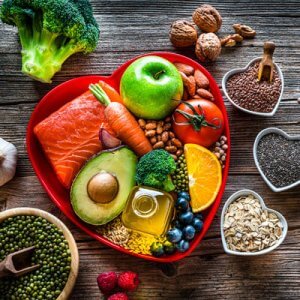 Just like getting good sleep and exercising each day are vital for good health, maintaining a healthy gut is crucial for overall well-being. The foods we eat play a significant role in supporting our gut microbiome. From fiber-rich fruits, vegetables legumes, nuts and seeds to probiotic-packed fermented foods, there’s a wide array of nutritious options that can positively impact your digestive health.
Just like getting good sleep and exercising each day are vital for good health, maintaining a healthy gut is crucial for overall well-being. The foods we eat play a significant role in supporting our gut microbiome. From fiber-rich fruits, vegetables legumes, nuts and seeds to probiotic-packed fermented foods, there’s a wide array of nutritious options that can positively impact your digestive health.
Understanding which foods to prioritize—and which to avoid—can make a substantial difference in nurturing a thriving gut ecosystem.
The Importance of Eating Fiber-Rich Foods
Fiber is essential for feeding the good bacteria in our gut. “Fiber is the food source that the “good”bacteria want to have more of,” said Gabrielle Grandell, Dallas Functional Nutritionist and Functional Medicine Certified Health Coach.
Here are some excellent sources of fiber:
- Fruits: apples, green bananas, berries, pomegranate
- Vegetables: artichokes, broccoli, Brussels sprouts, kale, spinach, cabbage, celery, and pumpkin
- Legumes: various types of beans
- Seeds: pumpkin, sunflower, sesame, and flax (especially when sprouted)
- Nuts: almonds, pecans, walnuts
Add More Fermented Foods: Probiotics Powerhouse
Fermented foods provide both fiber and beneficial bacteria. They’re like “taking probiotics, but also at the same time taking their food source,” said Gabrielle. Some popular fermented foods include sauerkraut, kimchi, non-dairy yogurts (coconut, almond, or cashew-based), tempeh, miso, unpasteurized apple cider vinegar with the culture, and fermented pickles.
Gabrielle recommends brands like Wildbrine for sauerkraut, which offers various flavors, making it more appealing to those who might not enjoy traditional sauerkraut.
Healthy Fats for Gut Support
While not fiber-rich, certain fats can support gut health. Extra virgin olive oil contains polyphenols that feed your “good” bacteria, while coconut products like coconut oil, MCT oil, and coconut manna (also known as coconut butter) are beneficial. According to Gabrielle, coconut products can act as an antiviral and are generally good for gut microbes.
Organic vs. Conventional
While organic produce is ideal, Gabrielle noted, “Even eating conventional fruits and vegetables and other fiber foods are still going to be helpful as opposed to not eating fruits or vegetables at all.” The key is to incorporate as many plant foods into your meals as possible.
Foods to Avoid
To maintain a healthy gut, it’s also important to be aware of foods that can harm your gut microbiome. Gabrielle recommends avoiding processed packaged foods with refined oils (soybean, corn, vegetable, safflower, sunflower, cottonseed), high fructose corn syrup, artificial sweeteners, alcohol, and refined grains, especially those with gluten (for those with sensitivities).
Ready to boost your gut health? Incorporate more of these gut-friendly foods into your daily meals and reduce your intake of harmful substances.
Book your consultation with Gabrielle today and get on the path to digestive wellness!
